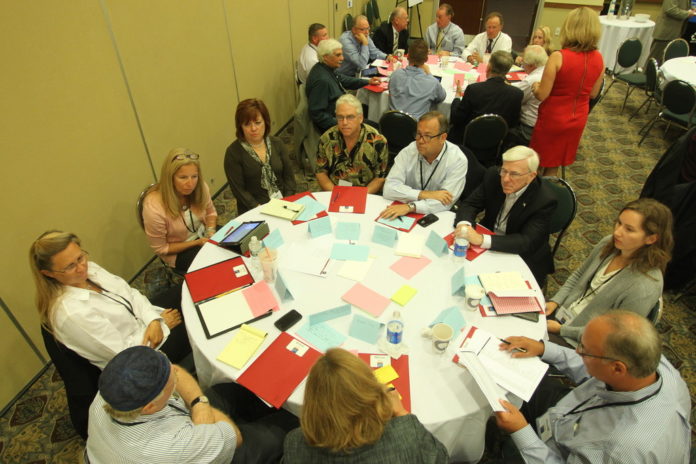
PROVIDENCE – “Things need to change” in the Ocean State economy, Rhode Island Foundation Executive Director Neil Steinberg told business and community leaders Friday morning in a plea for new ideas at the nonprofit’s Make It Happen RI forum.
For two hours, gathered around tables in the Rhode Island Convention Center, the state’s business and community leaders proposed new strategies for workforce training, investment vehicles, marketing and a wide array of public-private partnerships.
Among the many ideas that gained traction in a discussion on attacking unemployment:
- Convincing the tax-exempt institutions in the state with the largest endowments to invest them in a new Rhode Island-based $100 million investment vehicle that would provide capital for new businesses. “We have a venture capital gap – we go to these institutions with endowments and ask them to invest in Rhode Island,” said Providence Economic Development Director Jim Bennett.
- Pairing the state’s lowest-performing public schools with its largest employers in a mentorship and training partnership.
- Publishing a volume of all the state’s positive characteristics to counteract a culture of negativity that attendees agreed permeates it.
- Improving and further centralizing the state’s job databases to match the unemployed with openings.
- Competing with Boston for companies.
In discussions on improving the business environment attendees discussed creating more groups based on the Betaspring model, creating new partnerships between businesses and universities and getting more business people in government.
In the afternoon, groups are tackling the “skills gap,” helping entrepreneurs, and growing existing businesses.












